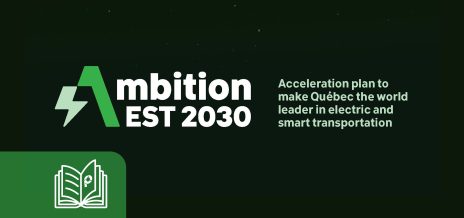Collaborative and secure data management
Montreal is recognized as a global hub for data management, and Quebec’s artificial intelligence (AI) skills are a valuable resource that the electric and smart transportation (EST) sector must capitalize on. Whether it’s to improve public safety, maximize service offerings, facilitate the development of projects in line with users’ real needs, reduce urban pollution and its impacts, the use of AI and the implementation of collaborative, responsible and secure data management can today propel mobility projects to another level.
In order to foster the growth and electric transition of Quebec’s transportation sector, Propulsion Québec aims to develop the enormous potential represented by AI by promoting fair, transparent and secure data governance. By using mobility data effectively and securely, Quebec and its ecosystem can easily position itself as a world leader in innovation, cybersecurity and data management, while making a concrete contribution to the fight against climate change and to the safety of its citizens.

Action plan:
Identify data monetization models that align with the transportation sector, and conduct business model case studies.
Bring the first integrated mobility projects to various Quebec cities.
Set standards and create data management models with fair, transparent, and secure governance to manage mobility data.
Interactive tool on ambitions and progress
Discover our participative tool that enables all ecosystem players to follow the progress of the 225 initiatives of our green industrial policy, grouped under 8 key strategic ambitions.
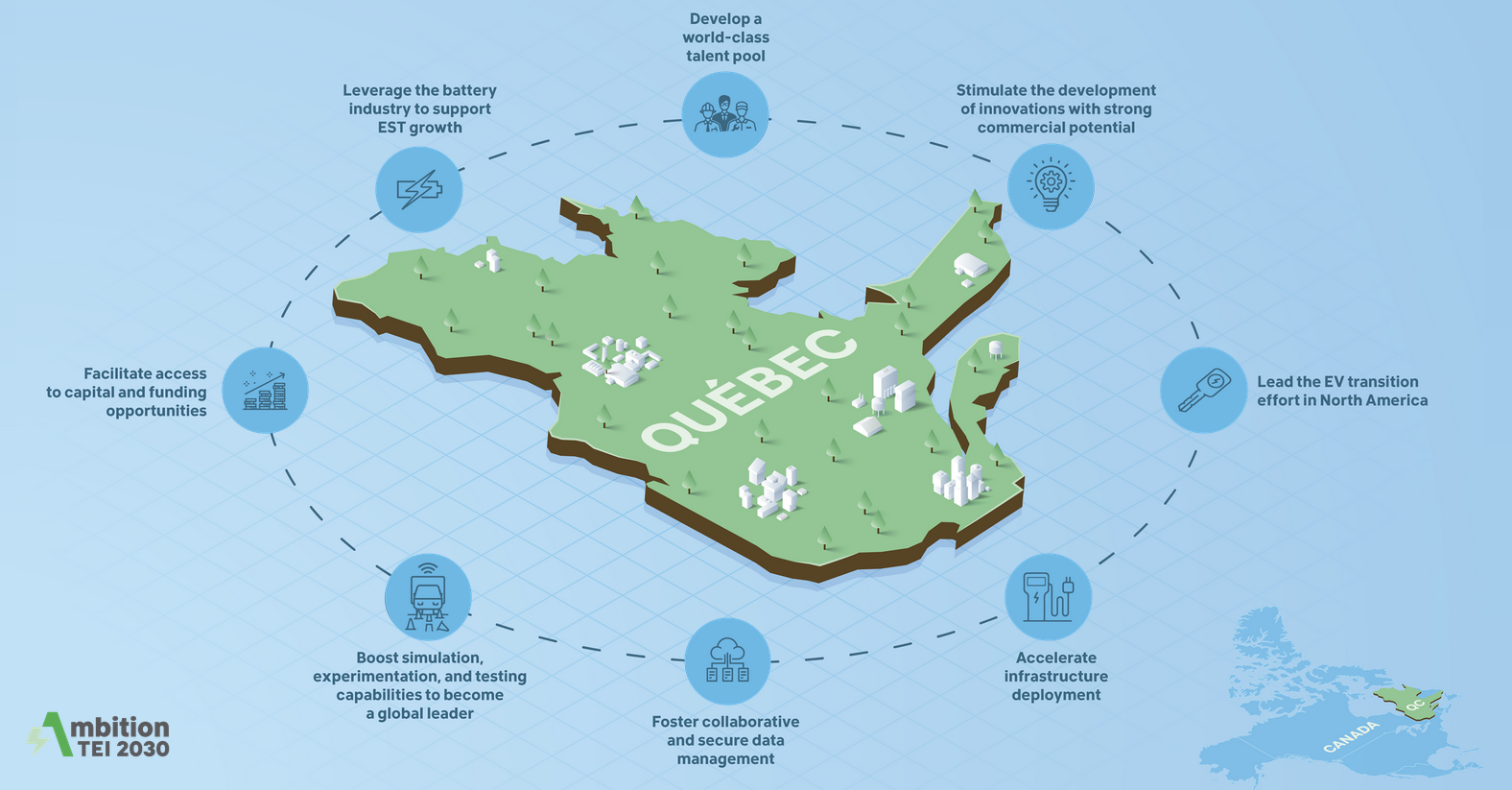
Related resources
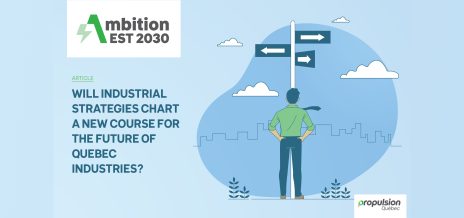
Will industrial strategies chart a new course for the future of Quebec industries?
The Quebec economy—and more broadly the world economy—faces multiple challenges: the climate crisis, supply chain problems, labour shortages, inflation, etc. Quebec has an abundant supply of resources, know-how, and expertise; however, the next points on its agenda should include structuring, developing, and planning industrial activities.
Read more
Telematic Data: the Key to a Successful Energy Transition
Fleet managers are currently facing the colossal challenge of the energy transition, in order to meet legislative requirements and societal demands. For most carriers, both in the passenger transport sector and in the last mile delivery sector, this green shift has already begun.
Read more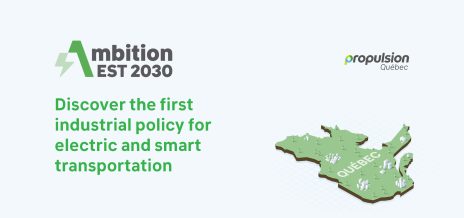
Ambition EST 2030 : a roadmap for propelling Quebec to the forefront of the electric and smart transportation industry by 2030
Propulsion Québec, the cluster for electric and smart transportation, is announcing Ambition EST 2030, a roadmap for the electric and smart transportation (EST) industry developed in partnership with Deloitte.
Read more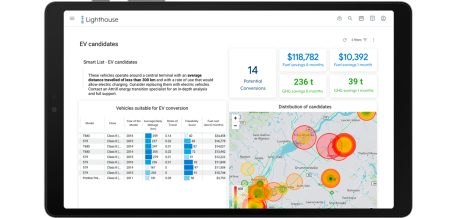
Energy transition, the challenge that is shaking up the trucking industry
The U.S. Department of Energy recently released a report containing a vehicle cost analysis for zero-emission medium and heavy-duty trucks.
Read more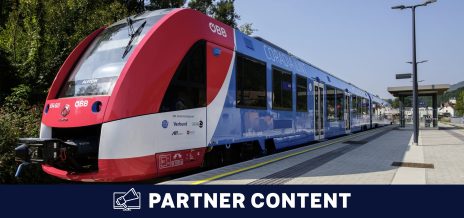
The Mobility of the Future is Smart, Green, Inclusive and Healthy
Innovation is part of our Alstom in Motion 2025 strategy. It has brought us to where we are today, and we want to go even further. With the new scale and combined expertise, Alstom has doubled its innovation capacity and we will support this growth by doubling the financial investments in R&D, up to 600 million euros (875 million Canadian dollars) per year by 2024.
Read more
Astus – Proud to support IMPULSION MTL 2021
With more than 25 years of expertise in the field of vehicle telematics, Astus is now a key player in the energy and digital transition of mobility and transport.
Read more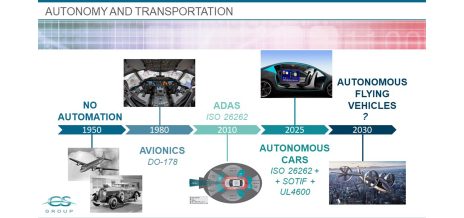
LiDAR and AI in autonomous vehicle commercialization and functional safety
The story of smart, autonomous transportation began nearly half a century ago. In the early 1980s, avionics systems started to replace more traditional mechanical and hydraulic systems through calculators and embedded software.
Read more
Is there a regulatory framework for location data?
Analysing location data can help service providers assess whether to boost services in one part of a city versus another, at a particular time of day or in preparation for an upcoming festival, for instance. However, the data used for these analyses is linked to individuals and makes it possible to identify them.
Read more